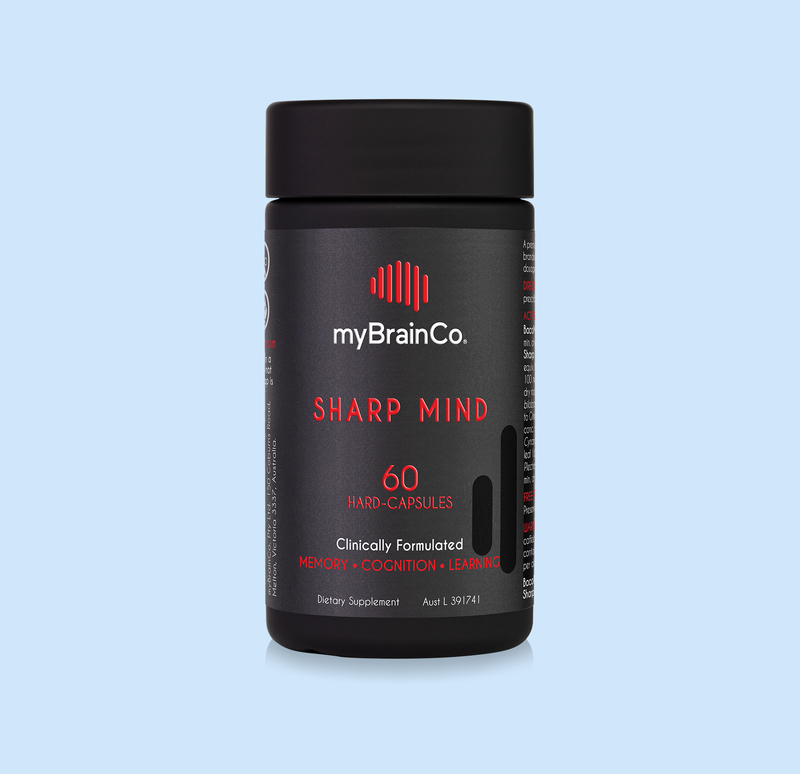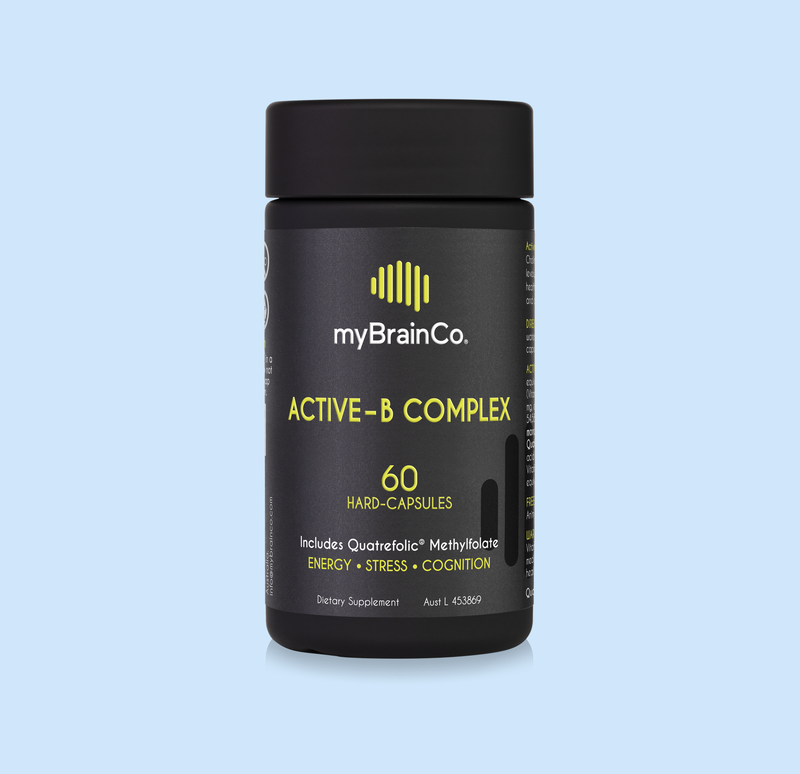Choline is a vital nutrient that both your brain and liver depend on for optimal function. While not always in the spotlight, this unsung hero plays a crucial role in maintaining cognitive health, cellular integrity, and metabolic balance. For biohackers, nootropic enthusiasts, and anyone passionate about brain health, understanding and optimising choline intake can be a game-changer.
What is Choline, and Why is it Important?
Choline is an often forgotten, yet essential nutrient that contributes to a variety of bodily processes. Here are some of its most critical roles:
1. Choline Enhances Cellular Membrane Integrity
Choline is a key building block for phospholipids, which are essential to maintaining healthy cell membranes. These phospholipids help to ‘sure up’ the structural integrity of cells, supporting overall cellular health and enabling enhanced cell-to-cell communication.
2. Choline Supports Liver Health
Choline, especially in its form as phosphatidylcholine, is essential for transporting lipids from the liver. Without sufficient choline, fats can accumulate in the liver which can increase our risk of non-alcoholic fatty liver disease (NAFLD). The metabolic impacts of NAFLD pose a significant threat to the longevity of our brain and nervous system.
3. Choline Is Important For Cognition
Choline is a precursor to acetylcholine. This critical neurotransmitter influences our memory, mood, muscle control, and other nervous system functions. This is why choline deficiency can negatively impact cognitive performance and emotional wellbeing.
4. Choline Modulates Gene Expression and Metabolism
Choline also plays an essential role in gene expression, cell membrane signalling, lipid transport, and metabolism. It’s especially important during early brain development, highlighting its significance for pregnant women and children.
5. Choline Is A Methyl Donor
In the absence of sufficient folate (a key B vitamin and methyl donor), the body relies on choline to meet methylation needs. This may be of particular benefit for those with decreases in folate metabolism function, such as those with MTHFR genetic polymorphisms. But there are other methylation genetics that also have a direct influence on choline metabolism including, PEMT and MTHFD1.
Dietary Sources of Choline
Now that we know how vitally important choline is to our wellbeing, you’ll want to know how you can optimise your levels by choosing choline-rich foods in your diet. Here are some top sources:
Animal-Based Foods:
-
Beef liver
-
Eggs
-
Beef
-
Fish
Plant-Based Foods (Lower Choline Content):
-
Soybeans
-
Potatoes
-
Brussels sprouts
-
Broccoli
-
Quinoa
-
Kidney beans
While animal products tend to have higher choline levels, vegetarians and vegans can still achieve adequate intake by focusing on these plant-based sources and considering supplementation.
Choline Supplementation Choices
For those who find it challenging to meet their choline needs through diet alone, or who want to boost the cognitive and metabolic benefits of choline, then added supplementation can be an effective solution. Popular options include:
-
Choline Bitartrate: A simple and bioavailable form of choline that can help give your choline levels a natural boost.
-
Alpha-Glycerylphosphorylcholine (Alpha-GPC): A form of choline known for its ability to cross the blood-brain barrier to yield more targeted support for cognitive function.
-
Phosphatidylcholine: Known for its ability to support cellular membrane and nerve integrity and help meet metabolic demands.
Meeting Choline Needs
The recommended daily intake of choline for adults is 425 milligrams (mg)/day for women and 550 mg/day for men. Choline demands increase during pregnancy to 550mg per day and for this reason, it often features in many pre-natal vitamin formulations.
Clues in your wellbeing that you might be in need of added choline include; returning blood tests showing elevated homocysteine, elevated cholesterol/lipids (especially VLDL), and markers consistent with a trajectory towards fatty liver disease. Physical symptoms might include; mood and memory disturbances, muscle aches, tingling, and fatigue.
Unsure which is right for you? A healthcare professional or naturopath can help guide you toward the right supplement and dosage for your individual needs.
Could You Benefit From Additional Choline?
Choline is a cornerstone nutrient for anyone focused on enhancing brain health, preventing cognitive decline, or optimising metabolic function. With a long safety profile, choline can be implemented confidently in most wellbeing plans. (*always chat to your health professional for personalised advice).
REFERENCES
Higdon J. Choline. The Linus Pauling Institute. 2000.
Wallace TC, et al. Choline: The Underconsumed and Underappreciated Essential Nutrient. Nutr Today. 2018 Nov-Dec;53(6):240-253.
Ganz AB, et al. Common Genetic Variants Alter Metabolism and Influence Dietary Choline Requirements. Nutrients. 2017 Aug 4;9(8):837.
Sherriff JL, et al. Choline, Its Potential Role in Nonalcoholic Fatty Liver Disease, and the Case for Human and Bacterial Genes. Adv Nutr. 2016 Jan 15;7(1):5-13.
Liu L, et al. Choline Intake Correlates with Cognitive Performance among Elder Adults in the United States. Behav Neurol. 2021 Oct 29;2021:2962245.
Bekdash RA. Neuroprotective Effects of Choline and Other Methyl Donors. Nutrients. 2019 Dec 6;11(12):2995.
Zeisel S. Choline, Other Methyl-Donors and Epigenetics. Nutrients. 2017 Apr 29;9(5):445.
Bekdash RA. Methyl Donors, Epigenetic Alterations, and Brain Health: Understanding the Connection. International Journal of Molecular Sciences. 2023; 24(3):2346.
Kerksick CM. Acute Alpha-Glycerylphosphorylcholine Supplementation Enhances Cognitive Performance in Healthy Men. Nutrients. 2024; 16(23):4240.
Kansakar U, et al. Choline supplements: An update. Front. Endocrinol. 2023 Mar 07;14
Fovall, Pet al. Choline bitartrate treatment of Alzheimer-type dementias. Communications in Psychopharmacology. 1980;4(2):141-145.
van der Veen JN, et al. The critical role of phosphatidylcholine and phosphatidylethanolamine metabolism in health and disease. Biochim Biophys Acta Biomembr. 2017 Sep;1859(9 Pt B):1558-1572.
Magaquian D, et al. Phosphatidylcholine restores neuronal plasticity of neural stem cells under inflammatory stress. Sci Rep. 2021;11:22891.



